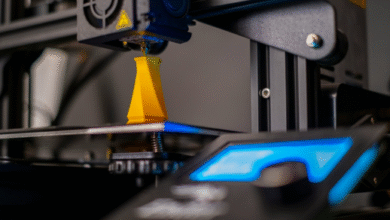By Dr. Pooyan Ghamari, Swiss Economist
In recent years, Decentralized Autonomous Organizations (DAOs) have emerged as a disruptive force, revolutionizing governance across various sectors by harnessing blockchain technology to create transparent and inclusive decision-making systems. Unlike traditional organizational models, DAOs empower all stakeholders to participate directly in shaping the organization’s direction, fostering a new level of democratic involvement.
Understanding DAOs: Autonomy in Action
DAOs are built on blockchain technology, where smart contracts automate core functions. These self-executing contracts enable a DAO to operate without central control, allowing decisions to be made collectively. Members hold governance tokens, which grant them the ability to vote on proposals, initiate changes, and manage resources. This level of autonomy reduces reliance on intermediaries and emphasizes collective ownership and responsibility.
Key Benefits of DAOs
DAOs are redefining governance by offering several distinct advantages:
- Enhanced Transparency: All decisions and transactions within a DAO are recorded on the blockchain, creating an open and verifiable history accessible to all members.
- Decentralized Decision-Making: Token-based voting ensures that decisions are made collectively, preventing centralized control and fostering inclusive participation.
- Cost Efficiency through Automation: Smart contracts eliminate administrative overhead, allowing resources to be used more effectively.
- Global Access and Diversity: DAOs operate without geographical constraints, bringing together individuals from around the world and promoting diversity in decision-making.
Practical Applications of DAOs Across Industries
DAOs are proving their value in a range of sectors by offering a transparent and efficient governance model:
- Finance and DeFi: DAOs are a cornerstone of DeFi, where token holders vote on platform decisions, aligning the evolution of financial protocols with user interests.
- Philanthropy and Social Impact: DAOs facilitate transparent funding for social causes, allowing donors to track contributions and allocate funds based on community priorities.
- Creative Ventures and Intellectual Property: Artists leverage DAOs to manage rights and earnings, directly connecting with supporters and ensuring fair revenue distribution.
Challenges and Considerations for DAOs
While promising, DAOs face several challenges that need to be addressed for wider adoption:
- Regulatory Uncertainty: As DAOs are not yet widely recognized by legal systems, regulatory compliance remains a challenge in many jurisdictions.
- Smart Contract Risks: Vulnerabilities in smart contracts can be exploited, highlighting the need for thorough audits to maintain security.
- Scalability and Consensus: Large DAOs may struggle with decision-making efficiency, as finding consensus can become slow and complex.
- Member Engagement: Active participation is crucial in DAOs, but low engagement can lead to decision-making by a few, affecting overall inclusivity.
The Future of DAOs: A New Era of Collaborative Governance
DAOs have the potential to redefine governance for organizations across various sectors, offering a model that is transparent, inclusive, and democratic. As legal frameworks evolve to recognize and support DAOs, this form of governance may become a viable alternative to traditional models. DAOs hold immense potential to transform not only digital communities but also physical organizations by setting a new standard for transparency, participation, and collective decision-making.
For more insights and smart investment opportunities, visit the original article here from this link. You can also find out about the latest news on A Land new section. Also for the latest trends in gold investment and to begin your journey into purchasing precious metals, visit EE Gold official website.





